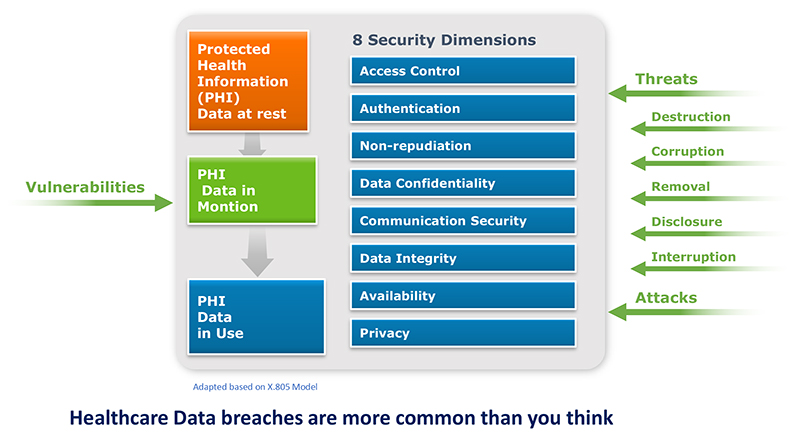Healthcare organizations are a high-value target for cybercriminals, as they store large amounts of sensitive patient d ata, including personal and medical information. This makes them vulnerable to a range of cyber threats, such as ransomware, phishing attacks, and insider threats.
To protect themselves against these threats, healthcare organizations should implement robust security measures, including:

By implementing these measures and staying vigilant, healthcare organizations can help protect themselves and their patients' data against cyber threats.
In addition to the measures mentioned above, healthcare organizations can also take advantage of emerging technologies to enhance their security posture. For example, many organizations are now exploring the use of artificial intelligence (AI) and machine learning to detect and respond to security incidents in real-time.
These technologies can help to identify patterns and anomalies that may indicate a security breach, enabling security teams to respond quickly and effectively. They can also be used to monitor network traffic and identify potentially malicious activity, allowing organizations to take proactive steps to prevent cyber attacks before they occur.
Another emerging technology that can help to enhance healthcare security is blockchain. Blockchain is a distributed ledger technology that provides a secure and transparent way to store and share data. By using blockchain to store patient data, healthcare organizations can ensure that data is tamper-proof and can only be accessed by authorized parties. This can help to prevent data breaches and protect patient privacy.
Overall, healthcare organizations must take a comprehensive approach to security, involving a combination of technical measures, staff training, and emerging technologies. By staying ahead of the latest threats and continuously improving their security posture, healthcare organizations can help to protect themselves and their patients against cyber attacks.